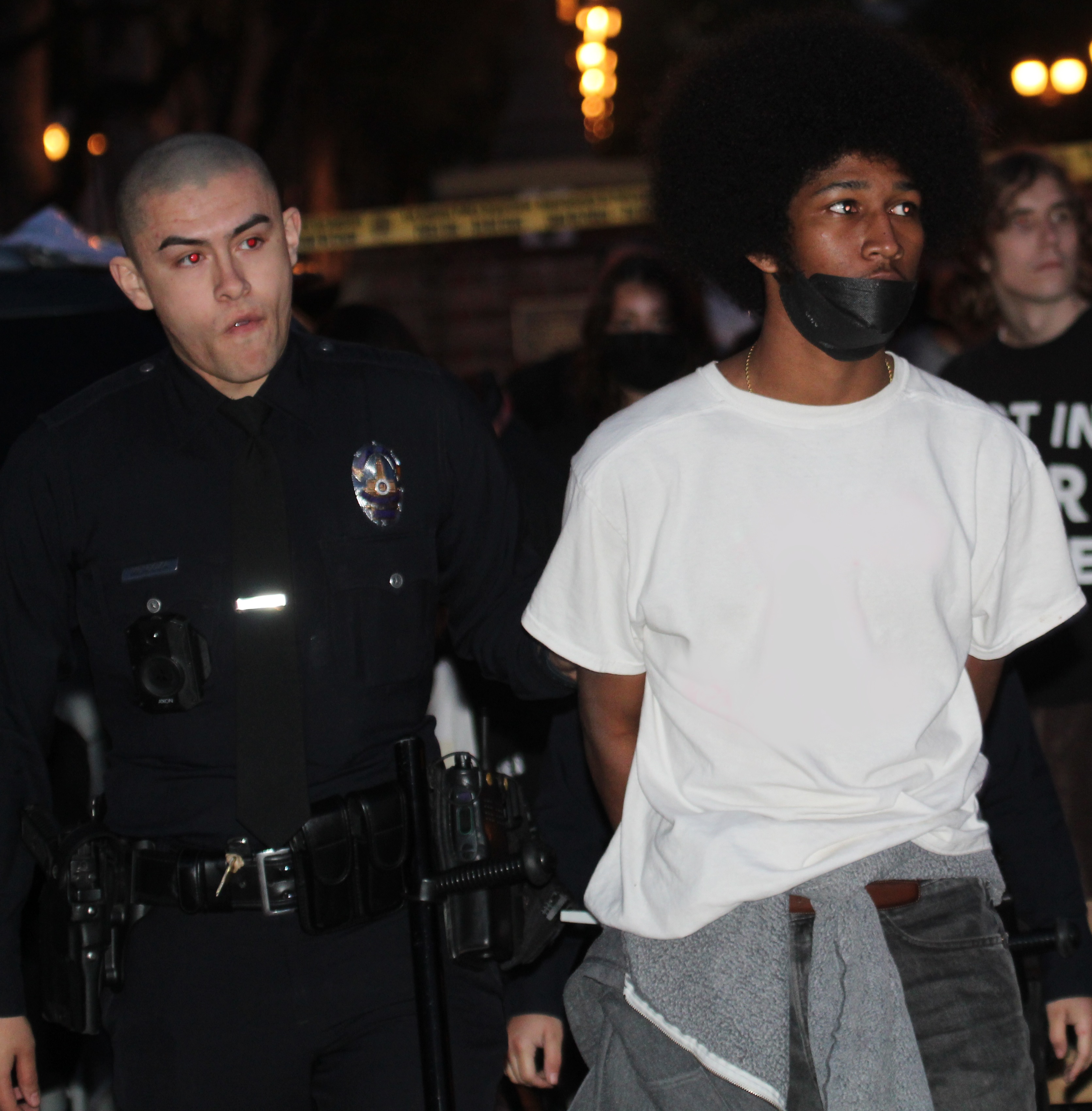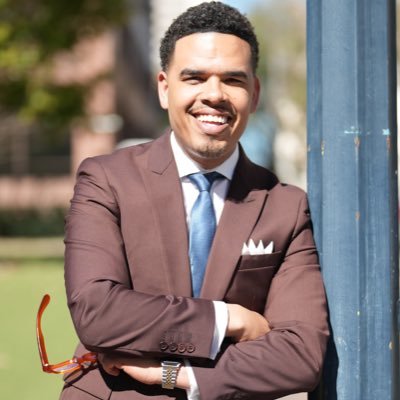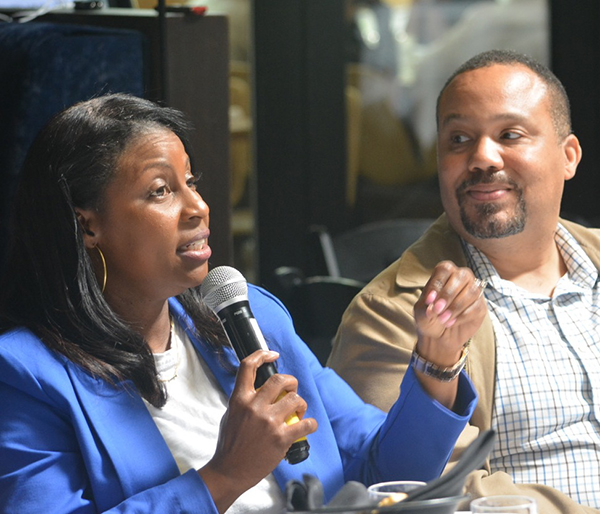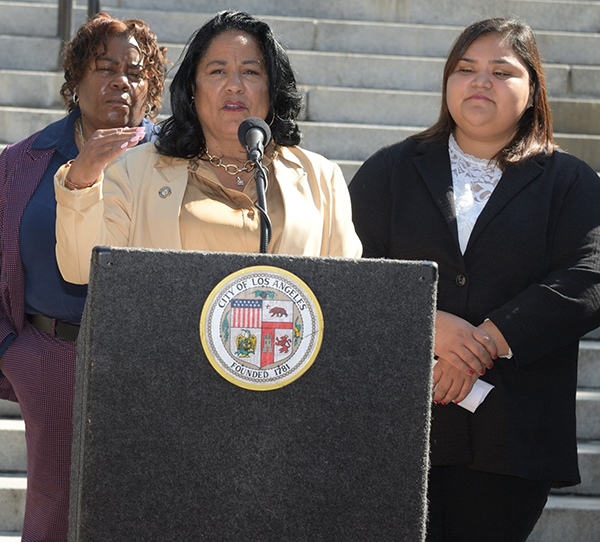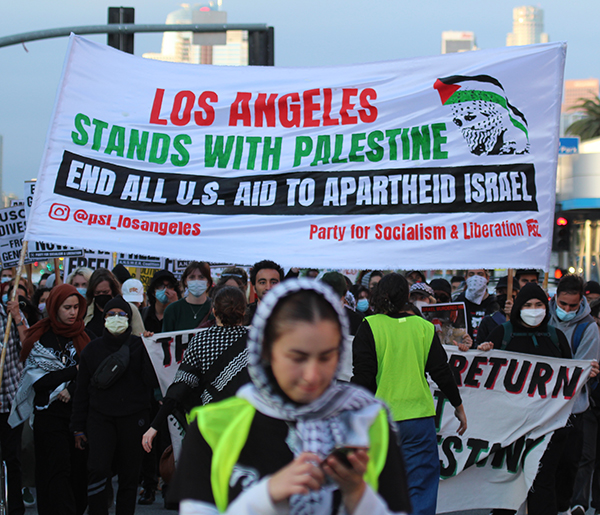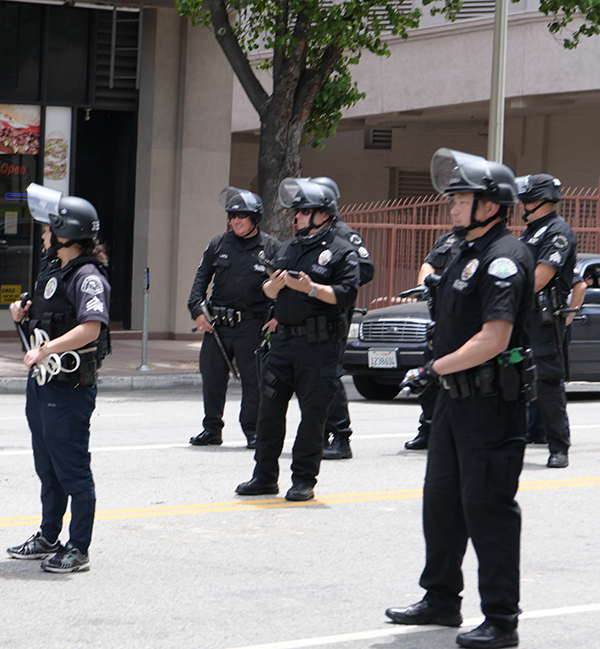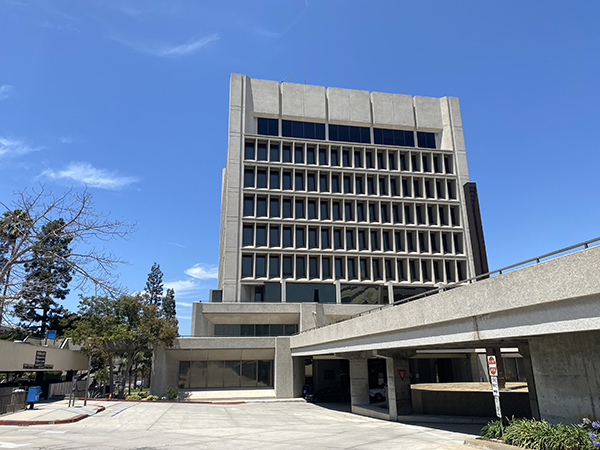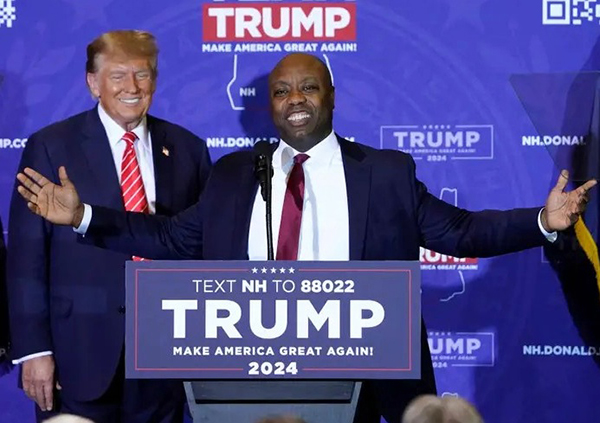By Earl Ofari Hutchinson
Contributing Columnist
Political pundits, commentators, analysts and Democratic party officials had a field day laughing at, ridiculing and mocking Donald Trump’s braggadocio boast before a Black conservative political outfit in Georgia before the Republican primary in February that Blacks adore, identify, even love him.
He claimed that legions of Blacks walk around with T-shirts on with a picture of the infamous mug shot of him being booked in Georgia after being charged with vote tampering.
To hear him tell it, since Blacks routinely get a raw deal in the criminal justice system, they instantly identify with his alleged endless self-described claim of legal persecution.
We can skip past Trump’s usual overblown self-promoting gaslight. However, what can’t be so mockingly dismissed is polls that show that more Blacks than ever do say they back Trump. There is good reason to believe and worry about this deeply troubling reality.
In his presidential victory in 2016 and loss in 2020, he did marginally better with Black voters than prior Republican presidential candidates. That alone was not much cause for concern, let alone cause to get out the worry beads that Trump and the GOP had made any kind of real breakthrough in prying Blacks away from the Democrats.
Despite all the supposed grousing among Blacks about President Joe Biden, he did even better with Black voters in the bellwether South Carolina primary in January than he did in 2020. There was no break in the solid Democratic ranks by Blacks.
That pattern almost certainly would be duplicated in other crucial primary elections in 2024. Focus groups of Black voters confirm that while more than a few Blacks continue to voice criticism and concern about some of Biden’s policies, and even dredge up his enthusiastic support of the punitive Clinton Crime Bill, almost none say they have any love, like of or desire to throw their lot in with Trump.
Yet, the harsh reality is that thousands of Blacks did vote for Trump in 2020. Their reasons are easy to explain. Trump touched a tiny nerve with his claim that poor, underserved Black neighborhoods are supposedly a mess with lousy public schools, high crime and violence, and chronic joblessness and poverty.
He dumped the blame for that squarely on the Democrats who run and have run most of these cities for decades. Trump doubled down on that slam with a handful of carefully choreographed appearances with high-profile Black preachers, at name Black churches.
It was just enough to take the hard and sharp edge for some Blacks off the almost-set-in-stone image of Trump as a guy with a white sheet under his suit.
There was more. As far back as the 2004 presidential election, there was a sign that more than a few Blacks, most notably Black conservative evangelicals, were deeply susceptible to conservative pitches on some issues. A considerable number of them voted for President George W. Bush that year and that was enough to give him the cushion he needed to bag Ohio and win the White House.
The same polls that election that showed Black’s prime concern was with bread-and-butter issues — and that Bush’s rival, Democrat John Kerry, was viewed as the candidate who could deliver on those issues — also revealed that a sizable number of Blacks ranked abortion, gay marriage and school prayer as priority issues. Their concern for those issues didn’t come anywhere close to that of white evangelicals, but it was still higher than that of the general voting public.
In 2008 and 2012, Black GOP advocacy groups ran ads hammering the Democrats again for their alleged indifference to and outright aid and abet of Black suffering in the inner cities, and touting the Republican Party’s emphasis on small business, school choice and family values as the best path to Black advancement. That pitch has always had some appeal to many Blacks.
And though it would never trigger any kind of stampede to the GOP by even most of these conservative-leaning Blacks, it was enough to take some of the sting out of the Republican’s naked history of racial abuse.
Trump understood enough of that history. He tailored the few pitches he made to Blacks for their votes to reflect the stock GOP pro-business, free enterprise and the healthy economy line as something that Blacks also could and should embrace. He is using the same template in 2024 with the added twist that he is supposedly a victim of a horribly racially skewed criminal justice system, just as Blacks are.
The 10-12% of Blacks who voted for Trump in 2016 and 2020, combined with the numbers who didn’t vote at all, or didn’t vote for Hillary Clinton or Biden, did not help elect Trump. He won with an Obama-like crusade among less educated white male and female, blue collar and rural voters.
However, enough Blacks did buy his pitch that a conservative, Republican businessman, with a horrific tainted racial history was a better bet in the Oval Office than a Democrat. That makes Trump’s 2024 pitch to Blacks even more fraught with peril.
Earl Ofari Hutchinson is an author and political analyst. His recent book is “Is Biden Really Too Old? The Politics of Age and Ageism in America” (Middle Passage Press). He also is the host of the weekly Earl Ofari Hutchinson Show on KPFK 90.7 FM Los Angeles and the Pacifica Network.

